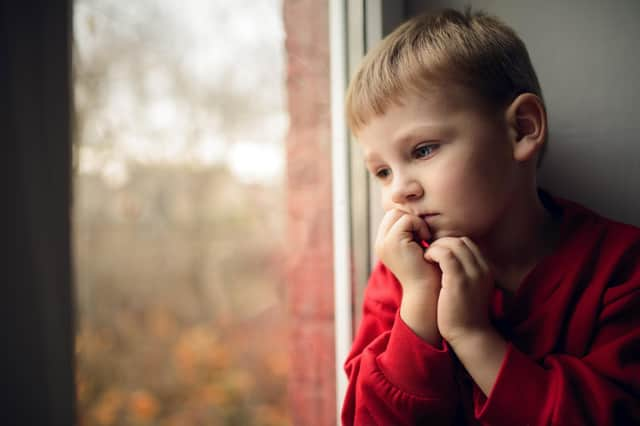Smacking harms children and doesn't work either - Jayne Dowle


Really? Is this day and age? We’re still having this argument? Why is corporal punishment even still acceptable in the home, when it’s been banned in every kind of school since at least 1998?
A recent poll found that two-thirds of parents object, and the signs are it’s dying out anyway. However, now we have another political hot potato that makes us look backward to other civilised European countries, yet again.
Advertisement
Hide AdAdvertisement
Hide AdI wish we could reach a sensible consensus that puts the welfare of children front and centre, especially given some of the horrendous child cruelty cases we’ve learned about during lockdowns. What goes on behind closed doors and all that. And don’t tell me light smacking and horrific child abuse are opposite ends of the scale. Harm is harm.
What a world we live in, when every single contentious issue ends up like this, with a bitter war of words, and kindness thrown into the gutter.
We now have a situation with the UK Children’s Commissioner, Dame Rachel de Souza, regarded – incidentally, but tellingly – as a shoe-in by Prime Minister Boris Johnson when Yorkshire-born Anne Longfield retired last year, and the Secretary of State for Education, Nadhim Zahawi, at loggerheads over whether parents should be permitted to use physical force on their offspring in England and Northern Ireland.
In Scotland and Wales, smacking is already outlawed. Ms de Souza is arguing this legal ban should be extended to the whole country. Mr Zahawi says the state should avoid “nannying people about how they bring up their children” and leave it up to parents to decide how to mete out discipline. With recriminations flying back and forth, it’s unlikely these two public servants will come to agreement any time soon. Surely however, it’s time for tolerance to prevail?
Advertisement
Hide AdAdvertisement
Hide AdLike many of my generation, I grew up knowing that a smack on the legs (with a slipper, if my mother could catch me as I dashed up the stairs out of her way) was what I got if I ‘misbehaved’.
My husband, the eldest of four boisterous lads, recalls that his mother had evolved her technique to holding her growing boys aloft with one arm to prevent them fighting her off. We do actually smile about these childhood memories now, but we also know that half a century ago, we grew up with violence as the go-to back-stop when other forms of reasoning were either not forthcoming or swiftly ran out. Both of us agree that physical punishment didn’t make us more ‘obedient’ or mother-fearing; in our typically matriarchal Yorkshire families, it was always mother who doled out the discipline.
Rather, physical punishment made us worse – more rebellious, more resentful and more likely to lash out with fists and feet towards others as young adults. What parent would want to send that message to their child, boy or girl? That violence is an acceptable and sanctioned answer to frustration? Not me.
When I had children of my own – my son Jack, is now 19, and his sister Lizzie, 16 – I determined to take a different path. Their late father, the gentlest of souls, wouldn’t raise his hand to a fly, never mind a child.
Advertisement
Hide AdAdvertisement
Hide AdSo they both grew up never knowing the fear that a parent was capable of instilling, except for that time when Jack – who was about four or five – ran straight across a road into oncoming traffic after his football. My immediate instinct was to slap his legs. Which I did. And then felt terrible afterwards when his eyes filled with tears of confusion.
I wanted my children to trust me, above all, and felt that hitting them in any way would violate that trust. I should add – to counter the charge I can sense brewing in the traditionalist camp – that I was never a fan of fancy right-on parenting methods either.
I kept things simple and to the point. A certain look. A swift withdrawal from an event, home and bed if behaviour was unacceptable. No brokering, deal-making or wheedling. Or even a naughty step.
My two were brought up knowing that withdrawal of privileges was my main tactic. If Jack pushed it too far, I would threaten him with phoning his football coach to cancel his club membership.
Advertisement
Hide AdAdvertisement
Hide AdThey soon learned. And now, I’m complimented on how polite and easy to get along with they are, without anxiety in any social situation, because they never learned to be afraid at home.
Adults and animals are protected by law from physical harm. So why does the Ed Sec think it’s OK for under-18s to suffer?
Perhaps if Mr Zahawi is so concerned about the state “nannying” parents, he should reconsider the humiliating and shameful practice of weighing and measuring healthy children in public, in school time, then allowing letters to be sent home telling them they are fat. I shouldn’t need to tell him to pick his fights carefully, but I will.